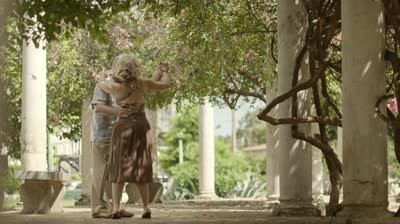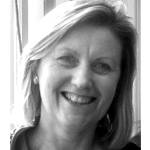Allied Health Professionals Q&A
Day 1

Hello & Welcome
During Dementia awareness week allied health professionals are posting a “blog a day” as a Q&A by four of our allied health professional colleagues. We invited the Scottish Dementia Working Group (@S_D_W_G), National Dementia Carers Action Network and people we work with, to ask questions to a dietitian, an occupational therapist, a physiotherapy and a speech & language therapist. This is the first blog in our series of five and offers an introduction to our Q & A blog posts

Day 1 Q & A
Three questions of my questions we were asked by the Scottish Dementia Working Group. The final question was asked at the Age Scotland member’s conference with colleagues Yolanda @Yol_ahp and Jenny @JennyAckland2.
Question 1
“How would we know about what services AHPs could provide for us if we hadn’t come to this meeting?”
Answer
You can find out more about each profession on their professional body website. Each one of the allied health professionals have their own professional body, standards of professional practice and can be contacted directly. In our blog we include the links to these professional bodies in our “Useful Links” section.
You will also find contact details of AHP services in your local health board website where there maybe be a list of what services are available. Here is an example in NHS Lothian.
http://www.nhslothian.scot.nhs.uk/Services/A-Z/AlliedHealthProfessionals/Pages/default.aspx
You can also contact your local authority who can link you to the occupational therapists. Here is an example by Edinburgh Council http://www.edinburgh.gov.uk/info/20057/housing_support_and_advice/435/adapting_your_home
You will find a few of us on social media so you can connect with us there too. If you follow the hash tag #AHPDementia you will see some of us there. All our twitter handles are included in our contributors pages too.

Question 2
“How do you know what you are entitled to and where to go to get help?”
Answer
One document you may want to look at for the allied health professionals is their Consensus Statement on Quality Service Values which brings together, for the first time, the minimum, collective service values of the Allied Health Professions into one clear statement and clarifies for service users what they can expect from Allied Health Professionals and Allied Health Professional service providers. You should expect to meet a group of professionals that are responsive, engaged, inclusive, safe, effective and most importantly person centred

http://www.gov.scot/resource/0043/00438291.pdf
Added to that, all the allied health professionals in the health service and local authority will be registered to the Health Care Professions Council (HCPC) www.hcpc-uk.org. HCPC are a regulator, who were set up to protect the public and they keep a Register of health and care professionals who meet their standards for their training, professional skills, behaviour and health. Use this website to ensure that any private AHP practitioner is a registered Allied Health Professional
More specifically to what you are “entitled” to if you are living with dementia, you could also look at the Standards of Care for Dementia in Scotland. These standards have been developed to help people living with dementia and their carers understand their rights, and how these rights can help make sure that you receive the support you need to stay well, safe and listened to. The standards are based on your rights. You should use them to get the care, treatment and support you need.

Some extract from the standards that link to the role of allied health professionals
“Service providers will ensure that the actions of their staff and their policies and procedures demonstrate that staff use a variety of communication aids to help communication, including the use of life story books, talking mats, digital stories, interpreters as appropriate and referral to speech and language therapy”. (page 15)
“NHS Boards will ensure that a range of non-drug based interventions are available and include evidence based therapies, such as group based or individual cognitive stimulation, individual reality orientation therapy, art therapy, therapeutic activities and physical exercise programmes”. (page 25)
“All service providers will give people with dementia the support they need, wherever they are living, to continue to be involved in their ordinary activities such as; exercise, involvement in music, dance, social events and religious activity and to become involved in new activities and experiences”. (page 32)
http://www.gov.scot/Resource/Doc/350188/0117212.pdf
To ensure continuous improvement, the standards should be used in conjunction with Promoting Excellence: A framework for health and social care staff working with people with dementia and their carers. The framework outlines in detail the skills and knowledge health and social care staff should have depending on the role they play in supporting people with dementia. We aspire that all allied health professionals on graduation and in practice worked at the minimum of “skilled”.

http://www.gov.scot/resource/doc/350174/0117211.pdf
Question 3
“The role of community psychiatric nurse is still seen as central for our members. Do AHPs have close links with them? “
Answer
Allied health professionals build strong partnerships with other agencies, community providers and also other members of the multidisciplinary team both in the NHS and local authority. This will also include our community psychiatric nurses, district nurses and more recently the Alzheimer Scotland Link workers too. So yes we do have close links with the community psychiatric nurse who you can ask to refer you to an allied health professional in your local area.
Question 4
“How do I get in touch with an AHP if I need one?””
Answer
This is a question we are asked a lot and we have developed a new leaflet to help answer this question. Today we launch our Alzheimer Scotland allied health professionals leaflet, click here to access the leaflet.

Over the forthcoming weeks, this leaflet will be available in all our Alzheimer Scotland resource centres and directs you to how to get in touch with five of the allied health professions including dietitians, occupational therapy, physiotherapy, podiatrists and speech and language therapy.
We have many other allied health professionals not included in this leaflet as this leaflet was about those you are most likely to see in a community setting. Email us at TalkingDementia@alzscot.org if you would like to hear more about arts therapies, orthoptists, paramedics, prothetists, orthotists and radiographers (diagnostic & radiographers) in Scotland and we will and offer you a link to these professions too.
What’s next in this week’s blog series?
Finally, over the remaining four’s days, we have a Q & A series of real questions from people living with dementia and their carers being answered by members of the Alzheimer Scotland allied health professions dementia expert group so look out for them and please join in our “blog a day blether” for #DAW2015.
-

-

-

-

-
5th June will be by Joy @joysltdem
We welcome ideas and comments from our readers this blog to any of the answers in case I have missed out anything.
Tomorrow’s blog will be by Gillian and “Ask a Dietitian” Q & A.
 Elaine Hunter
Elaine Hunter
Allied Health Professional Consultant, Alzheimer Scotland
@elaineahpmh
My remit in Alzheimer Scotland is to bring the skills of AHPs to the forefront of dementia practice and to share with them the principles and practice of working in a major charity that is dedicated to “making sure nobody faces dementia alone”. I am leading the delivery of commitment 4 of Scotland’s Dementia Strategy. In short, a great job working with great people.





 Elaine Hunter
Elaine Hunter







 Guy Whitehead , Advanced Physiotherapy Practitioner
Guy Whitehead , Advanced Physiotherapy Practitioner











 Elaine Hunter
Elaine Hunter